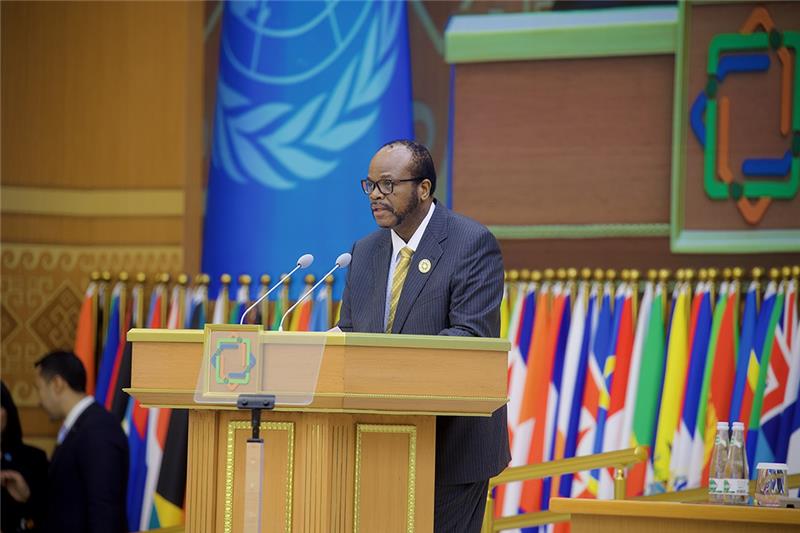
Awaza, Turkmenistan – Eswatini and Turkmenistan have embarked on a historic journey to dismantle the long-standing trade vacuum between their nations, opening formal talks aimed at establishing robust economic and technological cooperation.
The high-level meeting took place yesterday in the coastal city of Awaza, where both delegations explored untapped potential across multiple sectors, including energy, infrastructure, and advanced technology.
Leading Eswatini’s delegation was Foreign Affairs and International Cooperation Minister Pholile Shakantu, accompanied by Savannah Maziya, Minister of ICT; Manqoba Khumalo, Minister of Commerce, Industry and Trade; and Chief Ndlaluhlaza Ndwandwe, Minister of Public Works and Transport. Also in attendance were Ambassador Thami Dlamini, Eswatini’s envoy to the United Nations, and Chief Mgwagwa Gamedze from the King’s Office.
At the core of the discussions was a shared ambition to build a future-focused trade relationship. Eswatini outlined its keen interest in developing capabilities in space and satellite technology, data centres, and high-tech manufacturing, such as SIM cards and electronic devices.
“The Ministry of Foreign Affairs is expected to initiate formal communication for a cooperation agreement and confirm Eswatini’s participation in Turkmenistan’s ICT exhibition set for November 2025,” a source from the Eswatini side confirmed. Energy, particularly sustainable solutions, was also spotlighted as a key enabler of economic growth across other sectors.
Infrastructure was another focal point. Eswatini proposed leveraging its bitumen supply for sale in regional markets and requested insights into Turkmenistan’s raw material stock exchange to identify sourcing opportunities.
Discussions also extended to textiles and agriculture. Eswatini expressed interest in importing cotton and invited Turkmen counterparts to invest in its textile industry, which currently employs over 30,000 people. On the agricultural front, Eswatini aims to export produce while seeking to import wheat and rice.
In mining and fuel, Eswatini invited Turkmen investment in its iron ore and coal reserves and discussed the potential to secure raw fuel supplies. Sugar exports were also tabled as a promising trade channel.
The talks mark a new chapter in Eswatini’s external engagement strategy and underline Turkmenistan’s growing influence in regional and intercontinental economic affairs.



